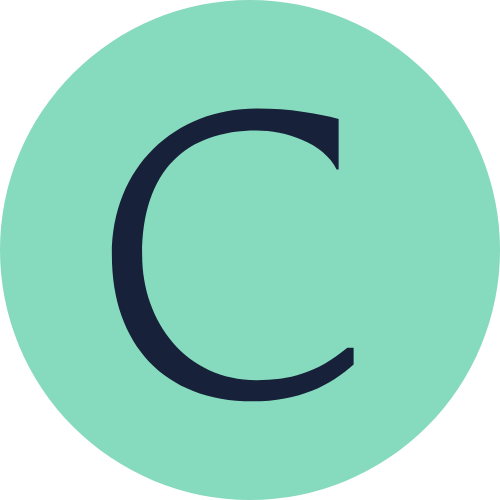11 Ways CATALYST Helps Students Level-Up For University
Discover how CATALYST goes beyond traditional education, empowering students for university and beyond through rigorous programmes, exposure to thought leaders, and personalised coaching.
CATALYST looks beyond the constraints of a traditional syllabus, instead focusing on helping students explore how the world changes, to emerge as global drivers of change themselves.
Effecting positive change in the world is a long-term journey: decades, not months or years. As such, we seek to work with the most ambitious and curious students, and we are not afraid to say that if you’re looking to simply add a line to your CV or boost your university application, this probably isn’t the right programme for you. However, ironic as life is, participating in a CATALYST programme might just do exactly that.
Appreciating that university applications are - rightly - top of mind for students, we wanted to provide clear answers to the question: “How will CATALYST help my/my student’s/my child’s university applications?”
1. Admissions practice
Parts of our admissions process parallel what you might expect when applying to a university or a job. For example, all students will complete a formal written application and finalists will be invited to a live interview, after which an admissions decision will be made. Interviews are led by the CATALYST team, further exposing candidates to a university-level application experience.
2. Programme rigour and content
We seek to raise the bar for our students: why should young people have to wait until university to be engaged in more complex and challenging content? The academic rigour and interdisciplinary nature of our programmes prepare students for the reality of university and beyond. More than 50% of students who have previously participated in CATALYST felt the programme was more challenging than their school classes; 97% felt it was at least as challenging as their most rigorous school classes.
3. Exposure to thought leaders
The beauty of digital-first lies in the ability to tap into a wealth of knowledge, practices, and people from around the world. We provide a unique opportunity for students to connect with world-leading educators, thought leaders and practitioners affecting change on a global stage.
CATALYST students have had the chance to discuss how technology impacts law and geopolitics with Lady Justice Ingrid Simler DBE and Major-General Johnathan Shaw CBE, and they’ve round-tabled with Peter Convey, a leading polar ecologist with the British Antarctic Survey.
4. Carefully selected peer group
The CATALYST classroom looks a lot like a university classroom. Our competitive application process ensures all students are equivalently curious and ambitious. Students benefit from working across diverse geographic lines, as part of an international cohort - far more diverse than a typical classroom.
5. Personalised university coaching
CATALYST students can access 1-2-1 university coaching sessions with specialist advisors both during programmes and after, as alumni. Coaching sessions provide guidance on admissions processes and offer students the chance to explore how time with CATALYST can be incorporated into specific parts of their application - for example, a personal statement.
6. Interview prep & confidence building
CATALYST programmes are rooted in dialogue and discourse. We believe that education should foster collaboration, decision-making, and active discussion, which can instill in students a new sense of confidence.
7. CATALYST Change Project
CATALYST students undertake a Change Project during the programme. This project serves as students’ final work which can take many forms: thought leadership, a model or composition, video production etc. The project aims to clearly articulate the need for change in a domain of their choosing. More aptly, it’s a launchpad for students to establish a voice in driving change.
8. CATALYST Transcript
All students who successfully complete a CATALYST programme receive a detailed CATALYST transcript. The transcript is a comprehensive narrative document created by the CATALYST Team detailing students’ performance on the course. It provides personalised feedback and assessment against CATALYST's key competency areas: negotiation and resolution, narrative defence, effective communication, quantitative fluency, empathetic collaboration and critical analysis and problem-solving.
Not only do students have the opportunity to develop these skills during CATALYST programmes, but they also have a clear report of their progress from Winchester College.
9. Personal academic reference
Some students may graduate with a ‘distinction’. Those that do are eligible for a personalised academic reference from a CATALYST educator to be used at the student’s discretion.
10. Ongoing support & alumni opportunities
Our commitment to students’ academic and personal growth doesn't stop with the end of the programme. Some of the ways we continue offering support include:
'CATALYST in your corner' where students can reach out to the CATALYST team for support at anytime
Mentoring opportunities offer alumni the chance to develop coaching and facilitation skills through micro-internships
Further coaching touch-points for alumni throughout the school year
'An alumni campus' that is accessible by all alumni to use as they see fit
Curated offerings from outside CATALYST such as scholarships, work opportunities, or other programmes that CATALYST has reviewed
Early access to new programmes with special offers to further develop students’ change projects
11. Financial backing and the opportunity to go even further
Pun intended… we hope that CATALYST programmes are just that: catalysts. A structured and supportive launchpad for the most ambitious and curious minds. To help students go further, and faster, we also seek to sponsor extraordinary change projects by providing up to £250 in project finance. We hope that students use funds to take real-life action… when we say we push our students to look beyond university, we mean it.



